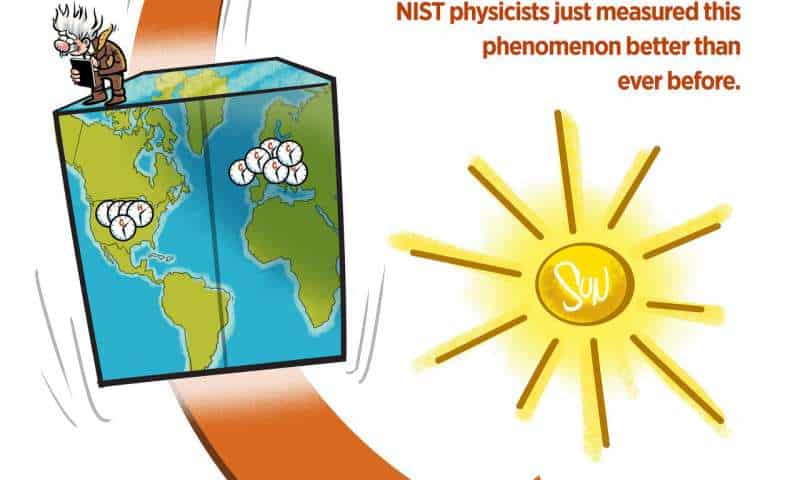

It was another good week for physics as a team at the U.S. National Institute of Standards and Technology conducted an atomic clock comparison that confirmed key assumptions of ‘Einstein’s elevator’—one of the principles underlying the theory of general relativity. And a team working on the CMS project at the Large Hadron Collider reported that they were looking to answer the question “Who gets their mass from the Higgs?”
In astronomy news, NASA made headlines when a team working with the Curiosity rover reported that they had found ancient organic material and mysterious methane on Mars, two discoveries that fueled hope of finding signs of life on the Red Planet. Meanwhile, another team working on NASA’s Juno mission reported that they had solved the 39-year old mystery of lightning in Jupiter’s atmosphere—the team discovered that it is both similar to and the opposite of Earth’s. Also, a team led by UCLA’s Anna Ciurlo gave a presentation at this year’s American Astronomical Society Meeting outlining their discovery of more mystery objects near the Milky Way’s super-massive black hole. And a pair of researchers from the University of Wisconsin and Columbia University reported that they had found evidence suggesting that we could thank the moon for Earth’s lengthening day. Stephen Meyers and Alberto Malinverno compared it to a spinning figure skater who slows down as they stretch their arms out.
In other news, a team at the University of California reported their desert trials on a solar-powered, next-generation water harvester that delivers fresh water from the air. Also, a team at the Lewis Katz School of Medicine at Temple University reported that they had reversed cognitive impairments in mice with dementia. And a team of Australian and French researchers discovered that bees understand the concept of zero.
And finally, if you are one of the many people taking medications to prevent a heart attack or stroke, you might want to look into the results of a study by a team at Stanford University. They found that millions could have incorrect statin, aspirin and blood pressure prescriptions—due possibly to outdated pooled cohort equations.























